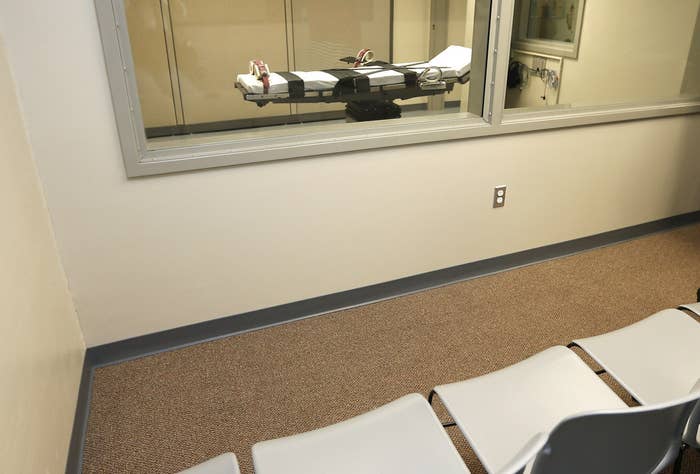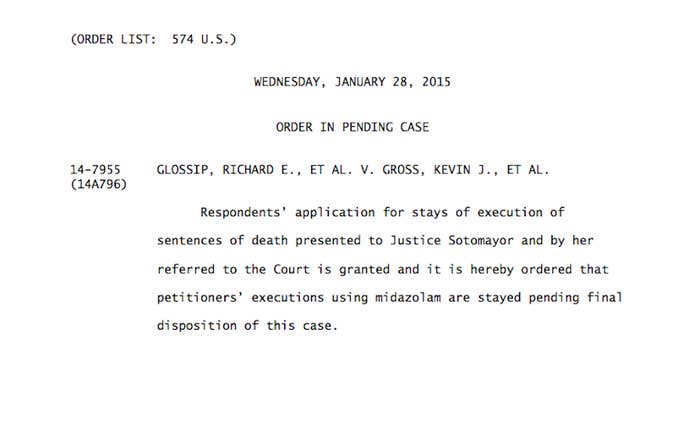
The U.S. Supreme Court on Wednesday ordered Oklahoma to postpone the next three executions until a legal challenge involving the state's use of a sedative used in problematic executions was resolved.
The court's order came two weeks after it refused to stop the execution of Charles Warner, who brought a legal challenge against the state along with three other inmates for the state's use of midazolam in executions, and days after the court agreed to hear the remaining three prisoners' challenge to the use of the drug.
Midazolam, a controversial sedative, was used in prolonged and problematic executions in Oklahoma, Arizona, and Ohio.
The order postpones the executions of Richard Glossip, which was scheduled for Thursday, John Grant on Feb. 19, and Benjamin Cole on March 5.

Both the state and the attorneys for the three inmates had requested a temporary halt to the executions following the Supreme Court's Jan. 23 order granting review in the case.
The state's application asked for Glossip, Grant, and Cole's executions to be stayed "until final disposition of this appeal; or, alternatively, until ODOC has in its possession a viable alternative to midazolam for use in its executions."
The high court order specifically limited the stay to executions using midazolam, which is the state's currently used protocol and is the issue pending before the justices. The order did not say anything about alternative means of execution.
The underlying case is expected to be argued in April and decided by late June.

